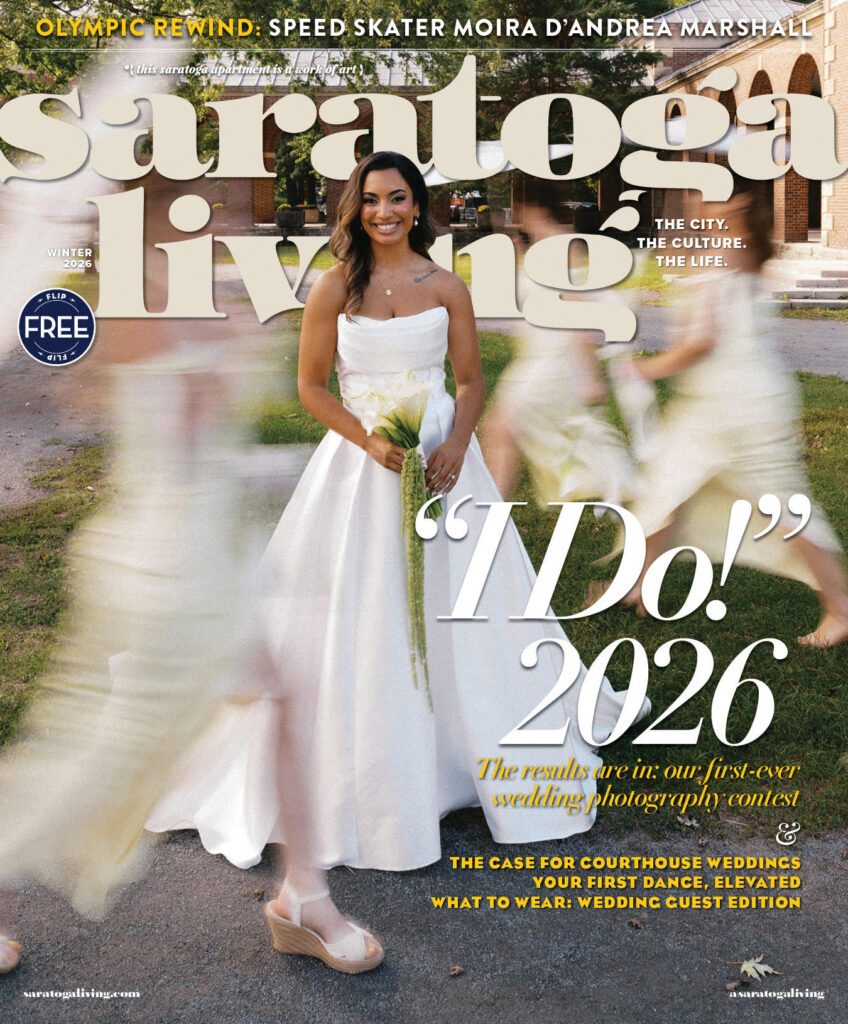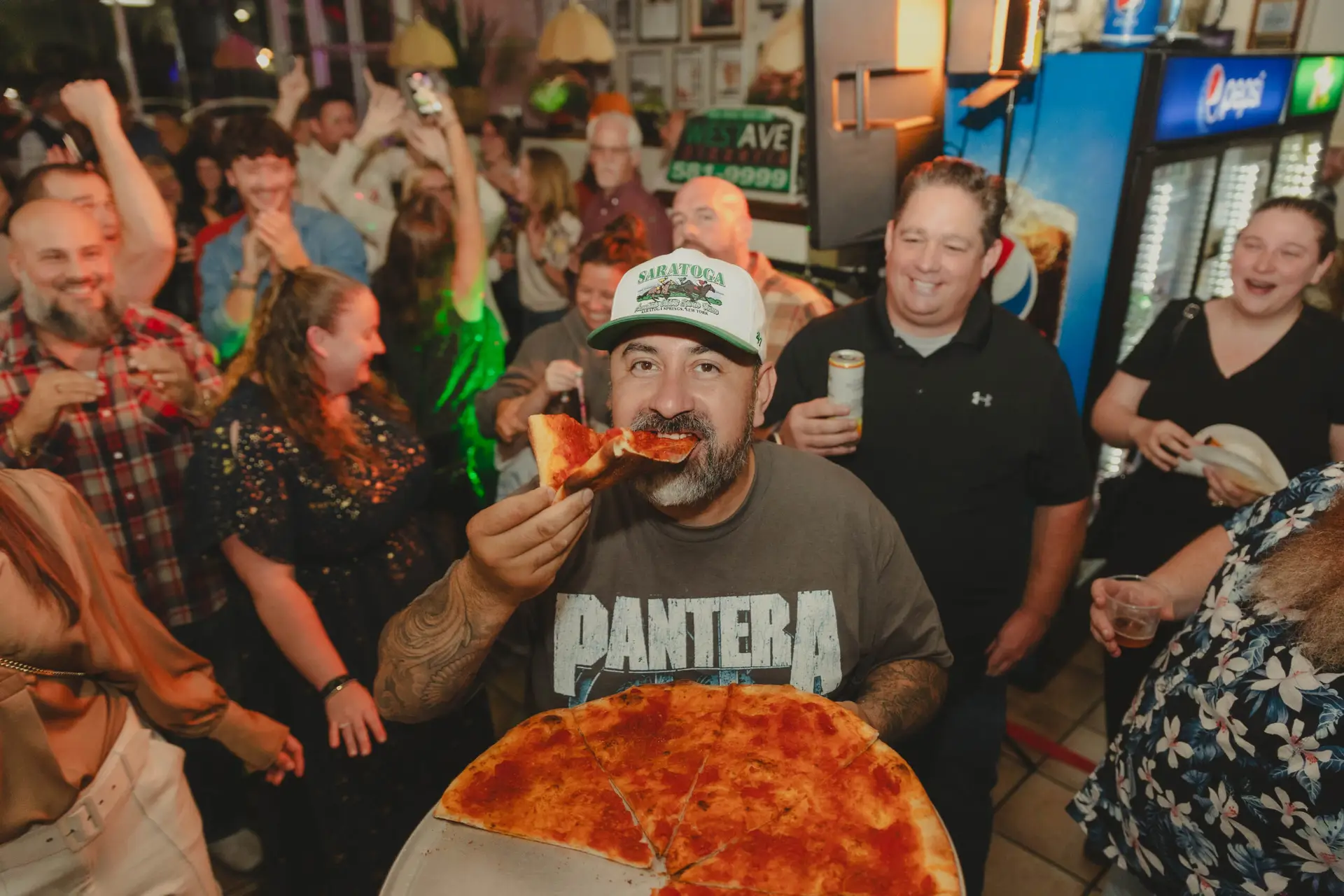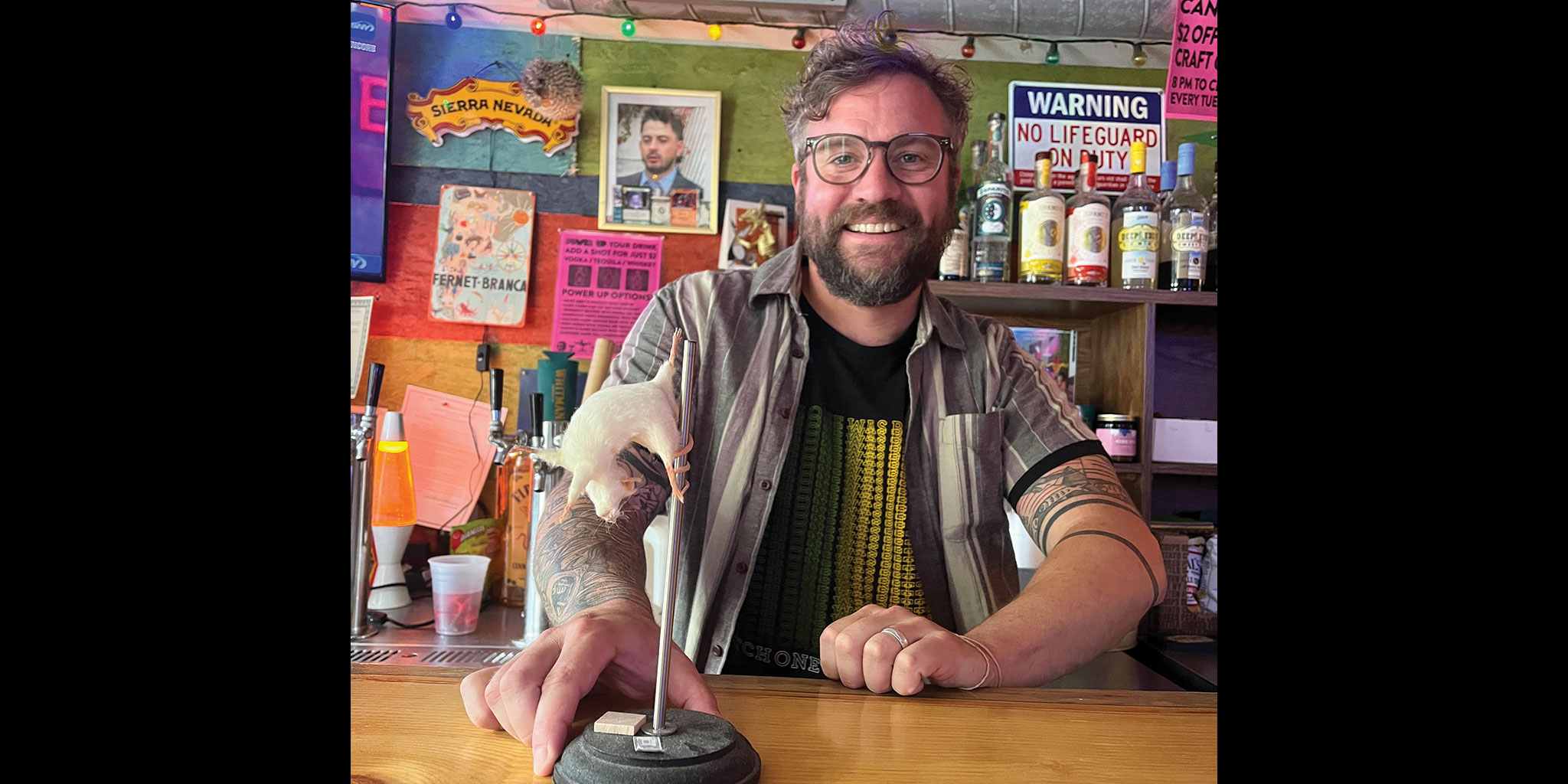If you’ve caught any of the first four seasons of MGM/Hulu’s 15-time Emmy Award–winning series The Handmaid’s Tale, starring Elisabeth Moss (Mad Men), you’ll know that it’s anything but an easy watch. Based on the same-named novel by Margaret Atwood and set in a dystopian future where women are forced to live as sex slaves to fundamentalist theocrats, it started pushing the envelope from the pilot—and never really let up.
Lucky for us Saratogians, we’ve been able to get a little bit of insight into what the show’s all about from one of its key players. It turns out that, from a “Six Degrees of Kevin Bacon” perspective, Steve Gonick, a co-owner of and investor in the Saratoga/Schenectady co-working space and cafe, the Palette Cafe, is just a single degree away from Eric Tuchman, an Emmy-winning writer, producer and executive producer for the hit series.
On May 17, Palette Co-owner Catherine Hover co-hosted a live Zoom chat with Tuchman, along with Gonick’s wife, Denise, who is the former president and CEO of MVP Health Care. Saratoga Living has been given exclusive access to the interview recording, and we’ve included several highlights below.
On being an executive producer and what that means
When you watch a TV show, you often see a lot of people with an executive producer title, and that’s because it means different things for different people. So, for instance, on The Handmaid’s Tale, there’s an executive producer who had the rights to the book, and he has that credit because of that. There’s a non-writing executive producer whose job is to make sure the production runs smoothly, and he’s the liaison to the studio. The star of the show, Elisabeth Moss, is an executive producer, because she has a lot of creative input on the show, overall. But for me, I’m a writer/executive producer, and that means…the first thing to know is that on TV, the writers are in charge. The writers make all the final creative decisions about the show. So, the first thing, is that at the very top is the showrunner, who is the big boss of everybody, and he or she is always an executive producer. And on The Handmaid’s Tale, that’s Bruce Miller, who created the show. And then there are other writer/producers like me, and as you gain more experience on a writing staff, and you go from job to job, and you take on more responsibility and stress, you get fancier titles. So you’re involved in every aspect of production.
On how Tuchman got involved in the production of The Handmaid’s Tale
It’s only because I’d worked with Bruce [Miller] on two other shows. I worked on a couple of shows on the Syfy channel, Alphas and Eureka. We had a great time working together. I didn’t even know [Bruce] was working on the project, and one day he emailed me his pilot script for The Handmaid’s Tale, and the subject line was “Shhh.” I read the script—I had not read the book yet—and I thought his script was brilliant and I remember thinking, if they do this right, it’s going to be a big show.
On author Margaret Atwood’s input in the show
We like to say on the show that it’s Margaret’s world, and we’re all just living in it, because the book is like our Bible; we constantly go back to the book, which does not have a lot of plot, if you’ve read it; it’s not a very plot-y book, and some of the characters barely speak that were included on the show. But she created such a compelling and unique world for the show. We can go back and find one line in the book that could then turn into an entire episode of the show. Margaret has been incredible supportive of the show; she reads the outlines and the scripts but hasn’t chosen to have any input on what stories we tell. I know that Bruce Miller always checks with her if [the writers are] going to do something questionable, to make sure she’s comfortable with it, and very rarely, she’s objected. The only times we may have changed course, is because she wrote the sequel to the book, The Testaments, that takes place 15 years later, [and] we couldn’t kill off people that appeared in that book.
On that signature red gown worn by all the handmaids in the show
The costume designer [Ann Crabtree] went through, like, 100 shades of red until she came up with the perfect red color for the handmaids and their cloaks, and you can tell when people try and copy the design on their own. It doesn’t look quite right; they never get the actual shade right. And I’ve never worked with someone where I’ve said, “This is a true artist.” [Crabtree] had a reason for every element of the costume down to their boots. Their boots don’t have laces, because the handmaids might have taken their laces off to hang themselves [with them].
On Season 4 of The Handmaid’s Tale
I know it’s a tough watch. It’s not a screwball comedy, but I do feel it’s a hopeful show. I feel like [June Osborne’s] ability to keep going is inspiring, and she has been through so much. And this season in particular—I don’t want to spoil anything for people who haven’t watched—the first third of the season is especially rough, and I, personally, had some issues with some of the scenes, but I’m not the big boss. But rather than focus on the trauma and the torture, I think what’s great about this season is we’re exploring how that trauma and torture impacts people, when they’re trying to move past it…I think the season is more about the resilience people have than the torture itself.
For more on Palette or to become a member, click here.















